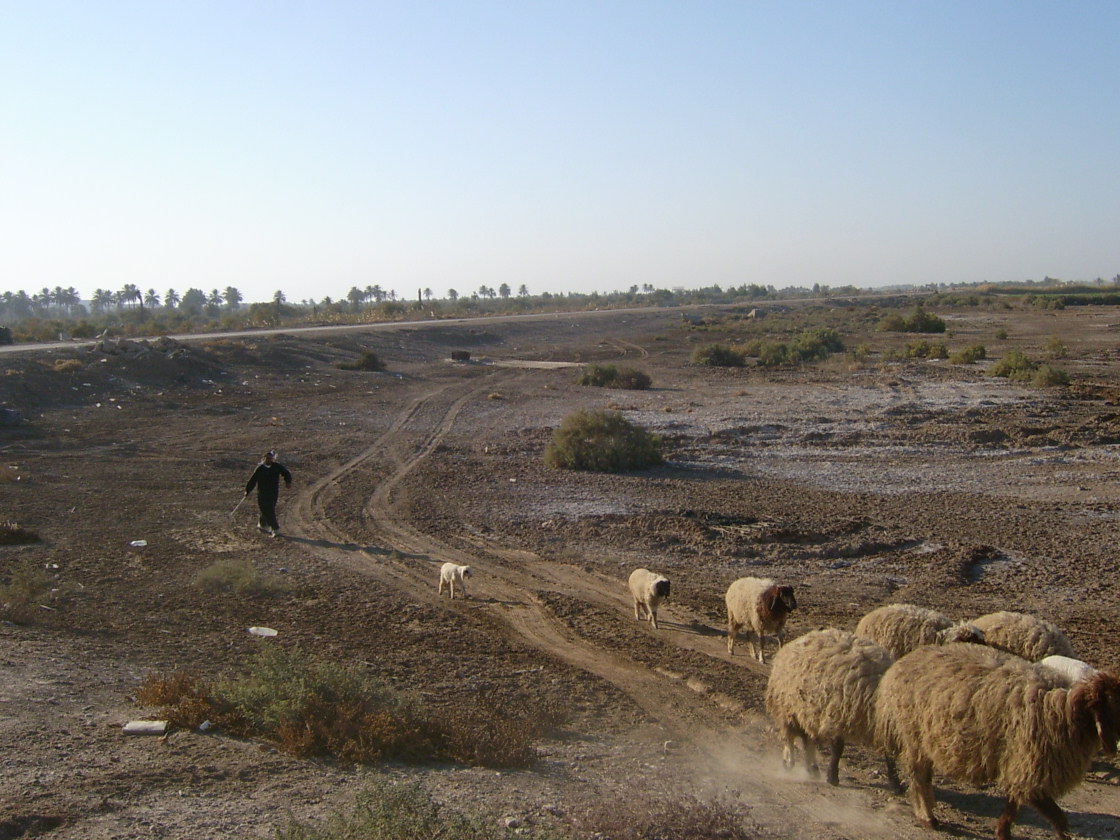I start with a picture that defines my worldview. This picture was taken at a small outpost on the Euphrates River south of Baghdad. As the sun set, I was struck the beauty of the river and the sun. Everything of beauty can have a semblance of ugliness. Warfare can bring out the best and the very worst in people. The rolls of concertina wire fit into the latter category.
Like the sunset on the Euphrates River, Kadamiyah in West Baghdad had its moments of beauty. Offsetting the palm trees was an AH-64 Apache Helicopter providing air support.
When I would fly over parts of Iraq, the helicopter would often fly over the Victory Base Complex. This was a series of palaces once occupied by Saddam Hussein and his inner circle. The senior leadership of U.S. forces would use these palaces as headquarters for commanders and staffs.
Despite the gaudiness of Saddam's palaces, Iraqi citizens lived in some awful conditions. Not quite the slums of India, but trash piles seemed to be everywhere. You never appreciate garbage collection run by local government until you live where that concept doesn't seem to exist.
On my 2005-2006 deployment, we lived in tents for for about 7 months, and moved into Containerized Housing Units (CHUs) for the last five months. We even had concrete barriers for protection against indirect fire. Laundry was contracted out, so we had clean linen, which is paramount in preventing disease. The Iraqi Army lived in "barracks" like these.
They lived in shitty conditions, and drove around in trucks like this. As their counterparts we had Up-Armored HMMWVs.
We were lucky, our vehicles could withstand some hits from IEDs a little better than jury rigged pick-up trucks
A bridge in South Baghdad over the Euphrates River. The bridge was there long before Americans arrived. The concrete barriers were not. Again, beauty contrasted with ugliness.
This was taken in Southern Iraq. There were many sides to Iraq, Sunni/Shia, Wealthy/Poor, Urban/Rural. A lone farmer with his flock walking about unconcerned with the broader war at the time caused me to reflect on life's priorities at the time.
The Temple of Ur. I was lucky enough to see this biblical site up close. We like to think war is a uniquely human endeavor. And we humans have been fighting wars for a long time. I like to think that humans can one day end war, and I look at this picture and am reminded that I could not figure out how to set the date on my camera. So we have that going for us.
I have been to scores of memorial ceremonies over the past 15 years. Most recently follwoing a suicide bomber attack on Bagram Airfield in Afghanistan. This photo was from my 2005/2006 deployment, where it felt like there was a ceremony every week. From Clausewitz to U.S. joint doctrine, we constantly try to define war. I think those of us who have been to war each leave with our own variance on the definition. To me, war is a place that brings out the best of us, and exposes the worst. War is the ultimate equalizer where men and women can succeed in anonymity or fail spectacularly. The results of success and failure is the differnece between a redeployment ceremony and a memorial cereony.










